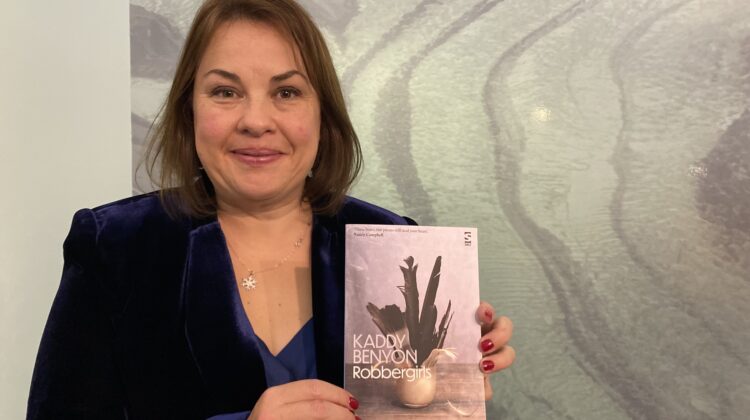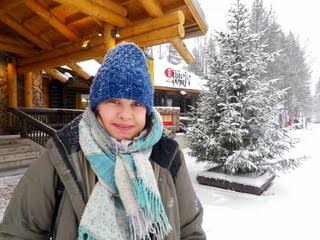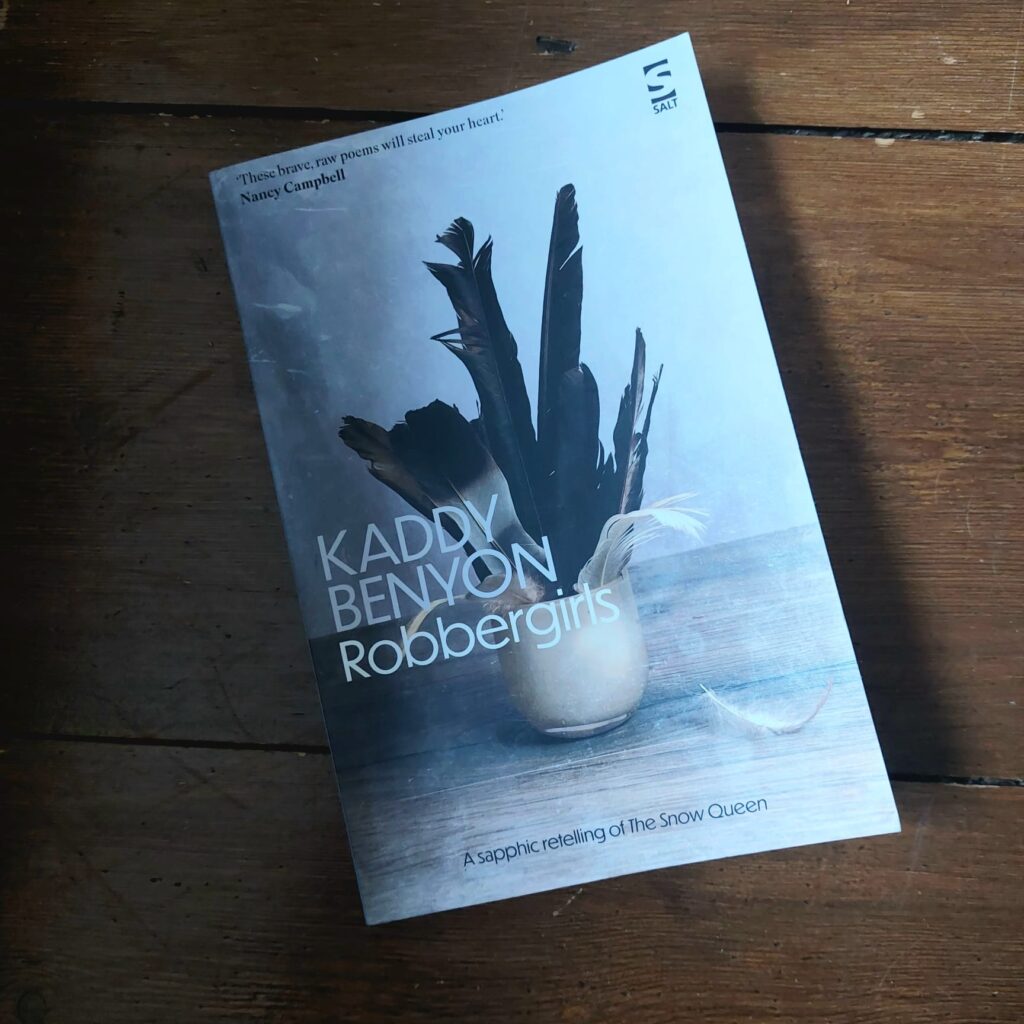
Award-winning poet Kaddy Benyon launched her third collection, a retelling of Hans Christian Andersen’s The Snow Queen, at the Polar Museum in Cambridge last night. Here she explains how growing up in rural Suffolk has influenced her work
When she was seven, Kaddy Benyon can remember her dad going to Denmark, home of Hans Christian Anderson, on a work-trip. More than forty years later, and the award-winning poet has just launched her third collection, Robbergirls, a sapphic retelling of the Danish writer’s fairy tale, The Snow Queen. Kaddy, who grew up in rural Suffolk, started her career as a television scriptwriter and wrote over 70 episodes of Hollyoaks and Grange Hill; before going on to be shortlisted for the inaugural Picador Poetry Prize and went on to win the Crashaw Prize with her debut collection, Milk Fever (Salt, 2012).
She is a Granta New Poet, and was Invited Poet at The Polar Museum in Cambridge where she collaborated with costume designer Lindsey Holmes on a text and textiles exhibition, The Snow Queen Retold. ‘I was already deeply immersed in my Snow Queen research, and luckily for me, it was also one of Lindsey’s all-time favourite fairy tales, so it just seemed organic to collaborate on that story,’ she explains.

Kaddy had a short residency with The Bothy Project on the Scottish island of Eigg where she wrote poems toward her second collection, The Tidal Wife (Salt, 2018); made research trips to Denmark, Finland, and Finnish Lapland while researching Robbergirls (Salt, 2023), which reimagines the literary fairy tale as a Sapphic rite of passage.
Robbergirls launched last night at The Polar Museum at the Scott Polar Research Institute, introduced by writer Nancy Campbell and in conversation with Lindsey Holmes. The collection is offered in seven sections that echo the fairy tale’s form, and the poems refuse to deny environmental breakdown, with Kaddy holding space for the indigenous people of the Arctic as she considers the devastating impacts of climate change on their landscapes and lives.
Her Suffolk roots have also influenced her writing, as she explains: ‘Growing up in rural Suffolk, meant living close to nature and learning to observe its tiny diurnal changes, as well as the greater seasonal ones.
‘The natural world is central to my writing, and I try to embody it as much as I can by recalling lived experiences from my childhood: the colourful hedgerow displays from spring to late summer, as well as the rot and decay of autumn to deep winter.
‘I am especially attuned to winter, which is why I write about it so often. I like its slower pace, that sense of quiet and solitude that makes long-ignored tasks feel more possible, like the renewal and repair of objects and the self, as well as those fearful, but ultimately magical, encounters with the dark which, for me, are always rooted in the night skies of Suffolk.’
Kaddy, who regularly critiques for other writers and works as a specialist mentor to students with disabilities at the University of Cambridge, adds: ‘Although there is a violence that comes also with growing up in the countryside, where one has to be in tune with the life cycles, there is always a sense of hope in Suffolk winters, for me, that things are incubating and rooting under the surface, and as the poet Edward Thomas wrote, ’Spring will come again’.’
Robbergirls, by Kaddy Benyon, is published by Salt. Also, visit The Polar Museum.










Leave a Reply